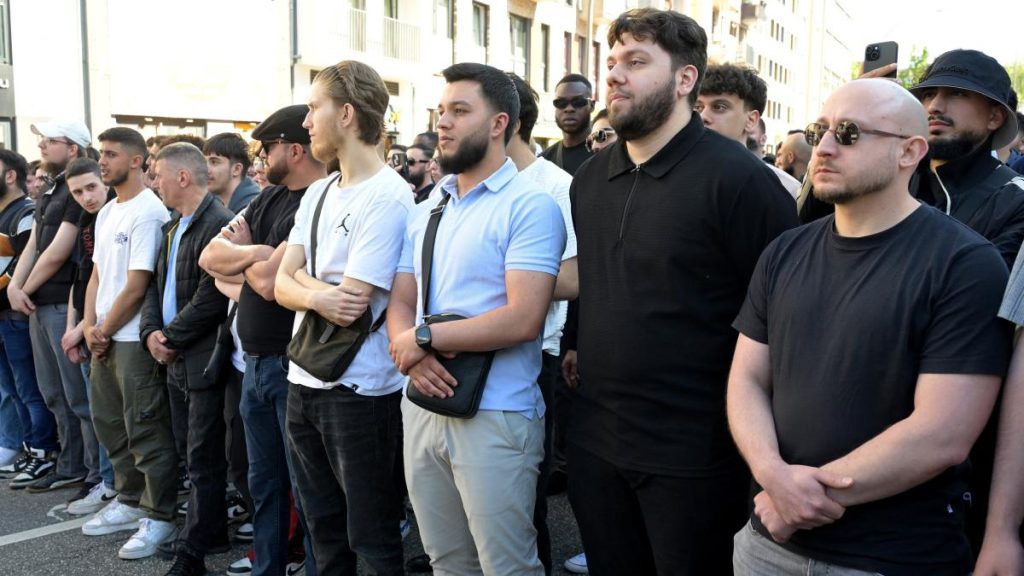Several hundred participants attended another Islamist demonstration in Hamburg, organized by the network “Muslim Interactive” under strict conditions. The group had previously caused outrage with a demonstration in late April where the establishment of a caliphate was demanded. Around 1,300 people participated in the demonstration in the St. Georg district, holding up white signs with the words “Censored” or “Forbidden” that were distributed during the event, as well as black flags with no markings. The organizers urged participants not to be provoked and not to speak to the press.
The speaker, student Joe Adade Boateng, claimed that freedom of speech was endangered in Germany. He repeatedly shouted “Germany has changed”, and criticized the media coverage of the previous demonstration in April as “incitement” that had turned Muslims into enemies of the state. Despite fears, there were no demands for a caliphate at the demonstration, as these had been banned by the authorities in advance. However, the call for a caliphate had caused headlines nationwide after the first demonstration, leading numerous politicians to call for a ban on the network “Muslim Interactive” and its subsequent demonstration.
Two counter-demonstrations took place simultaneously with around 120 participants each at Steintorplatz and Steindamm, where the participants expressed their opposition to a caliphate. These demonstrations were also closely monitored by a significant police presence. “Muslim Interactive” has been under observation by the domestic intelligence agency for four years. The Islamist network is primarily active on social media platforms. Despite the controversy and calls for banning the group, they continue to organize demonstrations that draw hundreds of participants.
The demonstrations in Hamburg highlight the ongoing tensions between extremist groups and authorities in Germany, with concerns about the potential radicalization of individuals who attend such events. The strict conditions placed on the demonstration by “Muslim Interactive” indicate the level of scrutiny and control that law enforcement agencies are placing on such gatherings. The presence of counter-demonstrations also showcases the diversity of opinions within German society regarding Islamist ideologies.
The participation of a large number of people in the demonstration, despite the controversial nature of the network organizing it, raises questions about the appeal and influence of extremist ideologies in the country. The statements made by the speaker at the event reflect a perceived sense of marginalization and discrimination among certain segments of the population, highlighting broader societal issues that may contribute to radicalization. The ongoing monitoring and scrutiny of groups like “Muslim Interactive” by authorities underscore the importance of vigilance in preventing the spread of extremist ideologies and potential acts of violence.


